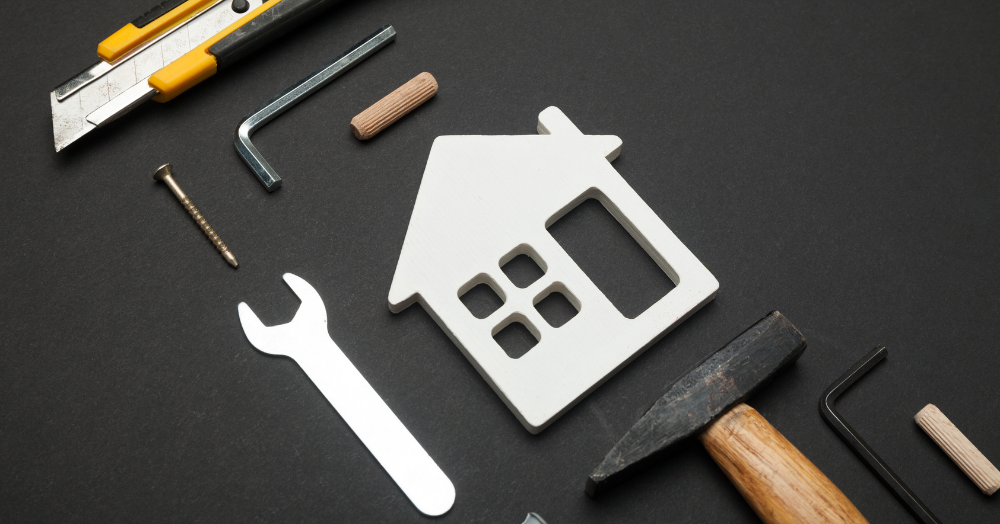
Tenants - these jobs are your responsibility! Stay on the right side of your landlord by keeping on top of these key things
As a tenant, you're always acutely aware that the property you live in doesn't actually belong to you.
You're told not to hang pictures.
Not to redecorate.
And you mustn't cause any damage.
So, when there are problems with the property, you'll call the landlord and let them know. This is their responsibility to sort out, not yours, as it's their property, right?
But, sometimes, landlords are not willing to carry out repairs.
Sometimes, the landlord will refuse and say that those jobs are the tenants' responsibility.
So, what should you be doing yourself as the tenant?
The official wording is that you should "conduct yourself in a tenant-like manner." In typical legal jargon, that is both vague and complicated in equal measure, really, isn't it!?
According to Shelter, the tenants' responsibilities are "Pay your rent on time. Claim benefits if you need to. Look after your home. Allow access for repairs and inspections."
And according to HousingAdvice, "take care of the premises. Make good any damage caused by you or anybody lawfully visiting or living there. Adhere to the terms of your tenancy agreement. Keep the inside of the property in reasonable proper order."
Take care of the premises? To what extent?
And neither of these sources make much mention of the property's exterior. In fact, Housing Advice says explicitly 'keep the inside of the property in reasonable proper order'. Does that mean that you can leave the garden to grow wild?
You need to look after the property; otherwise, you risk losing your deposit when you move out. But what other general maintenance tasks are you responsible for as a tenant?
Pay your rent. This one is obvious - everyone knows they're supposed to pay the agreed rent.
Unblock drains. Slightly surprising, perhaps, but if you block a drain, you're responsible for unblocking it. Your tenancy agreement will state that you shouldn't put coffee grounds or oil/grease down the kitchen sink, as this will increase the chances of creating a blockage. The same applies to hair in bathroom plugholes.
Change lightbulbs. Lightbulbs are a consumable product, and as they run out, you're expected to replace them. The number of working lightbulbs in the property will be itemised in the initial inventory. Therefore, you must ensure that the same number of working lightbulbs are present when you move out of the property.
Maintain the garden. You'd be surprised at how many tenants don't look after the outside of the property. Then at the end of the tenancy, the garden is in such a state of disarray that they either have to spend a weekend putting it right or forfeit their deposit money to pay for a gardener. This also includes paying for the garden waste bin. Some councils charge for garden waste separately, and tenants are responsible for renewing this licence to dispose of the garden waste or take it to the tip themselves.
Report issues promptly. If there's a dripping tap, it's not likely to be an emergency repair, more that it is just quite annoying. And if it's left, it probably wouldn't cause any significant damage because the drip is going down the drain. However, further damage is inevitable if that drip drips onto the floor. If repaired quickly, it'll be a simple job. But, if you leave it dripping for a week, a month, or maybe even a year, it'll slowly penetrate the floor. It won't be long before the ceiling below starts to suffer. Or if it's on the ground floor, the floor joists could be soaking up all of that moisture. Over time there will need to be either new floor joists or a new ceiling. Both options are very costly to your landlord and will cause tremendous upheaval for you as the occupant. And it could have easily been avoided with a quick phone call to let the landlord know as soon as you noticed the drip!
Pay bills etc. Your tenancy agreement will state that you must pay your utility bills. This, of course, is not to be paid to the landlord, but you can't vacate a property and leave huge unpaid debts to utility companies. Also, suppose your utilities are cut off. Over time the property will suffer without heating, negatively impacting the landlord. So, you must make sure that you pay your rent, but you are also required to keep up to date with your other bills.
Keep the property safe and secure. You must make sure that you keep it safe and have insurance in place. If you go away for a prolonged time, you need to inform your landlord and insurance company.
Respecting your rented property in a 'tenant-like manner' means looking after it as your own and making the payments required to live there.
If you have any issues that you are not sure if you should deal with or report to your landlord, get in touch with our expert lettings team now. They'll be happy to help in any way that they can.